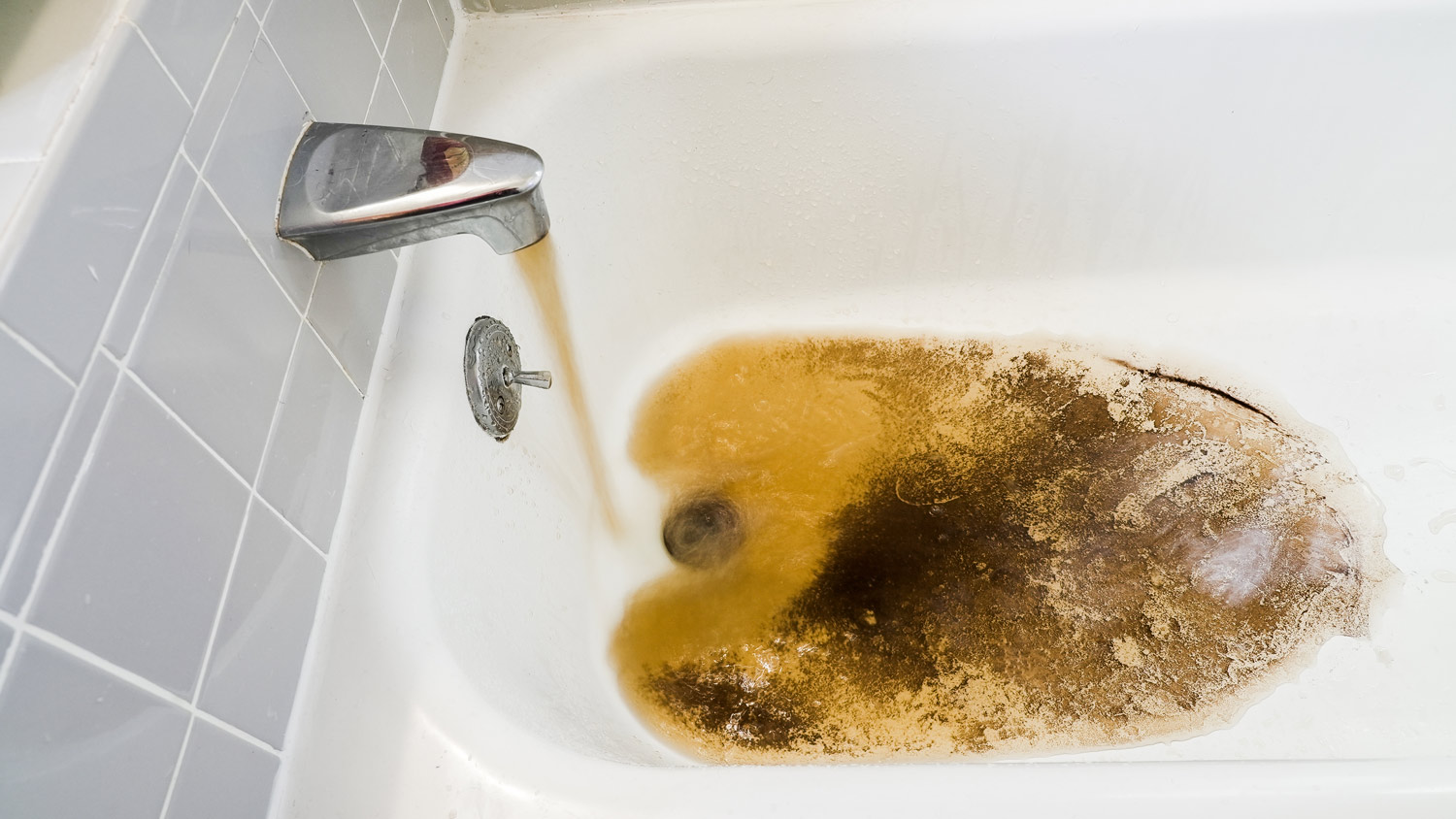Why Is My Sink Water Yellow? 4 Reasons Why Your Water Has a Golden Tinge
Yellow water is no reason to panic


Yellow water is most commonly caused by either a high iron content or the presence of tannins in the water.
Rust inside pipes, faucets, or a water heater can cause the water in your sink to turn yellow.
Yellow water usually turns clear if you let the tap run for a few minutes, but if the problem persists, it’s best to call a plumber.
Yellow-tinged water is not something you want to see when you turn on the bathroom tap. But while yellow water looks disgusting, it’s a common occurrence in homes. This guide explains why your sink water is yellow—and how to make it run clear.
1. High Iron Content
A high iron content is the most likely cause of yellow sink water. Iron can enter your water system for several reasons: utility work, water main breaks, and rusty pipes—any activity that can disturb the sediment in pipes.
The Solution
Wait to see if the problem is resolved by running the water for a few minutes to flush out the pipes. If the problem is consistent, call a plumber to check pipes for excessive rust or other underlying issues.
2. Tannins
If you get your water from a well, the yellow color could be caused by tannins. Tannins form when soil has a high peat content and the water passes through it. Water might taste bitter or smell musty if tannins are the cause.
The Solution
Tannins aren’t harmful to your health, but they can make your water taste and smell unpleasant. Call a pro to inspect your well and ask about activated carbon filtration and anion exchange to remove the tannins from the water before it reaches your home.
3. Corroded Faucets

If the water is only yellow in one sink, it could be caused by corrosion in your faucet. Over time, the inside of the faucet can rust and wear away, causing yellow (or even brown) water to come out.
The Solution
Take a few clear glasses and fill them with water from different sinks in your home to determine if the yellow water is a house-wide problem or concentrated in one sink. You may need to replace the faucet if it’s rusted and causing your water to turn yellow.
4. Rusty Plumbing or Water Heater
Rust in plumbing lines or your water heater can turn sink water yellow. Pipes made from galvanized steel are especially susceptible to rust. When water is only yellow when it’s hot, you probably have rust in the water heater.
The Solution
Call a pro to inspect your plumbing system and water heater. They may recommend replacing old metal pipes with PEX (cross-linked polyethylene) or CPVC (chlorinated polyvinyl chloride) to prevent future rust issues. Or they may flush out your water heater to clean it and remove rust buildup. Note that flushing out an old water heater model that has never been cleaned can actually damage it.
When to Call a Pro
In most cases, yellow sink water isn’t anything to worry about. It’s likely caused by your utility provider flushing out the lines and will resolve if you let the water run until it’s clear. However, if the water stays yellow even after letting it run for several minutes, you might want to call a plumbing repair professional near you.
A pro can inspect your home’s plumbing system to check for any underlying issues that are turning your water yellow. They may recommend replacing old pipes and faucets, installing a filtration system, or repairing any broken components in the plumbing system.
Frequently Asked Questions
If the yellow water is caused by utility work, flushing out the faucet by letting it run for several minutes should eliminate the tinge. If that doesn’t work, you might have a corroded pipe, faucet, or water heater. A plumbing repair pro can inspect your plumbing system to determine the problem and recommend a fix.
Iron sediments from rusty pipes are not likely to cause health problems. While a glass of yellow-hued water is off-putting, it is generally safe to drink yellow water in the short term. But you certainly want to address this problem. In the meantime, switching to bottled water until the yellow water issue is resolved is a good idea.
Yes, it is safe to bathe in yellow water. The iron or tannin content won’t harm your skin, and soap will clean you whether your water is clear or yellow. If you find bathing in yellow water problematic, you can ask a pro to inspect your plumbing and determine how to get your water clear again.





- Gas Plumbers
- Plumbing Repairs
- Sump Pump Installation
- Wood & Pellet Stove Repair
- Shower Repair
- Wood Stove Services
- Emergency Plumbers
- Fire Sprinkler Contractors
- Perc Test Companies
- Toilet Repair & Installation
- Boiler Repair
- Sewer Line Repair
- Faucet Repair
- Main Drain Camera Companies
- Foundation Drain Installation
- French Drains
- Bathtub Replacement
- Subcontractors
- Storm Drain Contractors
- Affordable Plumbing
- Plumbing & Heating Companies
- Bathroom Repair Services
- Sink Installation
- Commercial Plumber
- Barndominium Builders
- Water Line Repair
- Faucet Installation
- Water Line Installation
- Leak Detection










